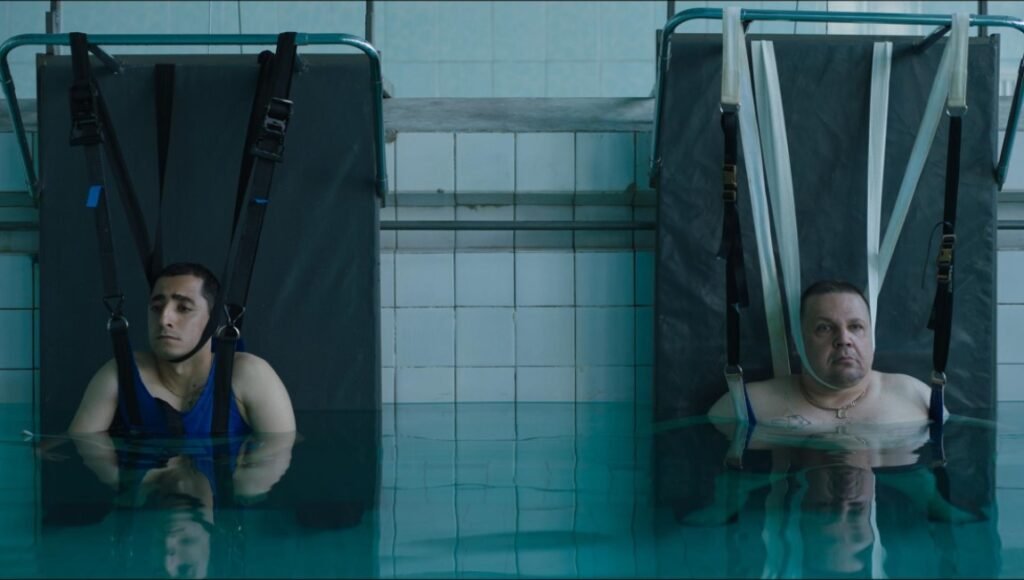It’s the pillowing warmth of nostalgia, which sporadically rears its head that it may provide orientation and affirm consciousness amidst historical chaos, that makes up the body of Antonio Lukich’s sophomore feature. Luxembourg, Luxembourg is a romantic ache in the tale of twins Kolya and Vasylii (Amil and Ramil Nasirov), whose lives play foil for one another as they reconvene upon receiving the news that their estranged father is dying in the eponymous country, a far-of journey from their native Ukraine. Lukich sees opportunity to delve into the familiar pinnings of a road movie (the genre of his debut feature, My Thoughts Are Silent) and therein seeks active subversion; instead, much of this opportunity is wasted, and the film languishes by and large in the stagnancy of the brothers’ daily frustrations and rose-tinted memories. What crystallizes is a discordant relationship between characterization and narrativization, as Lukich staggers the film with confrontations in the life of Kolya, the true protagonist who narrates his dreams, desires, and recollections as bookends to an aimless tale. To that end, Luxembourg, Luxembourg appears to want to conceive an emancipatory journey that seeks self-actualization, divorced finally from those coercive visions of a false past. These very visions find stock in their formal flourish, taking on the sensibilities of Scorsese in their montage. The emulations are peppered throughout the film, at random and, always, daringly superficial. There lacks in every joint of Lukich’s narrative a coherent relationship between its impromptu pieces which coalesce into not much more than a confounding collection of disparate sentiments, mediating between the filmmaker and his own fragmented memories.
Our characters, in each new step, are shirked by circumstance, their anticipation unyieldingly disappointed, the lies always unveiling themselves just as a smile might conjure on a face. These machinations reek of Euro-miserablism, siphoned through tonal indecision. Lukich positions himself at a great distance from his characters, and consequently so are we. Luxembourg, Luxembourg’s third act is upended by an expositional phone call just minutes prior to its denouement, a phone call which informs us of certain ulterior motives existing within this wandering plot. With such lack of organization, it’s a small miracle how emotion might be construed, much less come to the fore. All that’s really present, beneath the surface, are meager tropes to help guide Lukich through a reckoning with his own patriarchal relationships: his camera, his characters, his narratives all bungled by this narrowing of perspective, flattening out every faculty of his work into the simplistic association of unambiguous contrast. The brothers, in their individual ways, seek the vitality of life: Kolya in the fantasies of his father, Vasylii in the aspirational success of careerism (a cop looking to become a detective). Through deeply contrived means, they find themselves at the same platitudinous cliché: their longing for something is, in perpetuity, at odds with their capacity to grasp hold of the material world around them. The brothers create a fiction of their own predilection, only to be burdened by inevitable disillusionment; Lukich leaves us with this, a trite conception of material/psychoanalytic relations with not much more to contemplate.
Published as part of Venice International Film Festival 2022 — Dispatch 1.


Comments are closed.